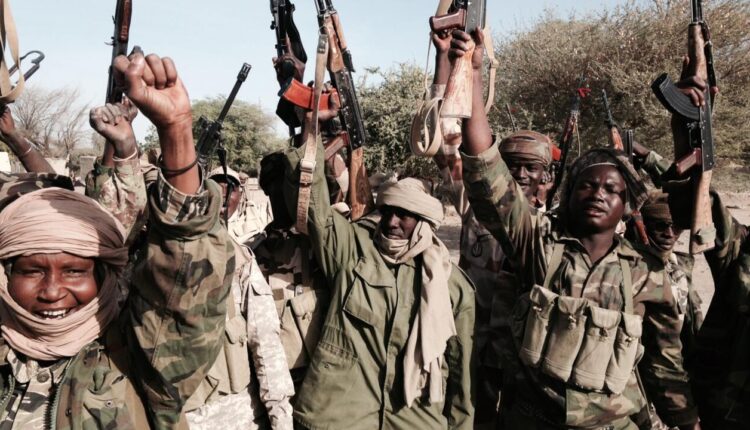UNBELIEVEABLE: Several Nigerian villages living under Boko Haram for 6 years
… They patrol our villages, collect taxes – Borno residents
Joseph Irikefe
As Nigeria’s insurgency enters its 16th year, new revelations suggest that parts of Borno State remain firmly under the grip of terror.
In at least three local government areas —Gudumbari, Marte and Abadam — residents say they continue to live under the shadow of Boko Haram and ISWAP control, with no consistent military protection since 2018.
Senator Ali Ndume, representing Borno South, told journalists in Abuja last weekend that the militant groups still maintain control over vast rural areas.
His statement comes on the heels of a renewed warning from Governor Babagana Zulum, who has urged the Nigerian government to act swiftly as attacks escalate.
“The government must act before this crisis spreads further. These communities cannot be left behind,” Zulum warned recently.
Inhabitants of Gudumbari disclosed that nearly a dozen villages fell to Boko Haram in late 2018, after insurgents overran and destroyed a military base in the area. Since then, they claim, there has been little to no presence of Nigerian troops beyond the local government headquarters.
“We have lived under Boko Haram’s rule for six years,” said one resident, whose name is withheld for security reasons. “They patrol our villages, collect taxes, and punish us. There’s no government, no army — only fear.”
The rural population, made up mostly of farmers, now finds itself subject to a system of illegal taxation enforced by militants. After every harvest, Boko Haram and ISWAP fighters demand a share of the produce. Locals say anyone who refuses to comply is punished—public flogging is common.
This system has worsened the humanitarian situation in Borno, where over 2.5 million people have already been displaced across Nigeria and neighboring countries.
In Abadam LGA, the situation has deteriorated so badly that only soldiers remain in the town. A local source confirmed that civilians have long since fled.
“There are no civilians left in Abadam town—only the military. Most people have crossed into Niger Republic,” the source said.
Estimates suggest that over half of Abadam’s population has fled the country, while others have scattered across nearby states like Yobe and Bauchi. The once-bustling town is now quiet, with abandoned homes overtaken by bush and decay.
In Marte, the story is not different. After repeated attacks, residents have abandoned the original town and now live in Sabon Marte, about 12 kilometers away. But even here, peace is elusive.
“Boko Haram still attacks from time to time,” said Babagana Ali, a resident. “We can’t even go to nearby towns like Dikwa for food unless the military escorts us—and that only happens once a month.”
Since Boko Haram launched its insurgency in 2009, the group has left a trail of devastation in its wake. According to the United Nations, the conflict has claimed over 35,000 lives, destroyed more than 1,200 schools, and pushed millions into displacement.
Despite military operations and territorial gains, large swaths of Borno remain contested. In 2025, reports like these show that insurgency is far from defeated—especially in rural areas beyond the media spotlight.
Residents of Gudumbari, Marte, and Abadam are calling for urgent intervention. Their message is simple: They want to return to a life of dignity, free from fear.
“We are Nigerians too,” said one local. “We deserve peace like everyone else.”


